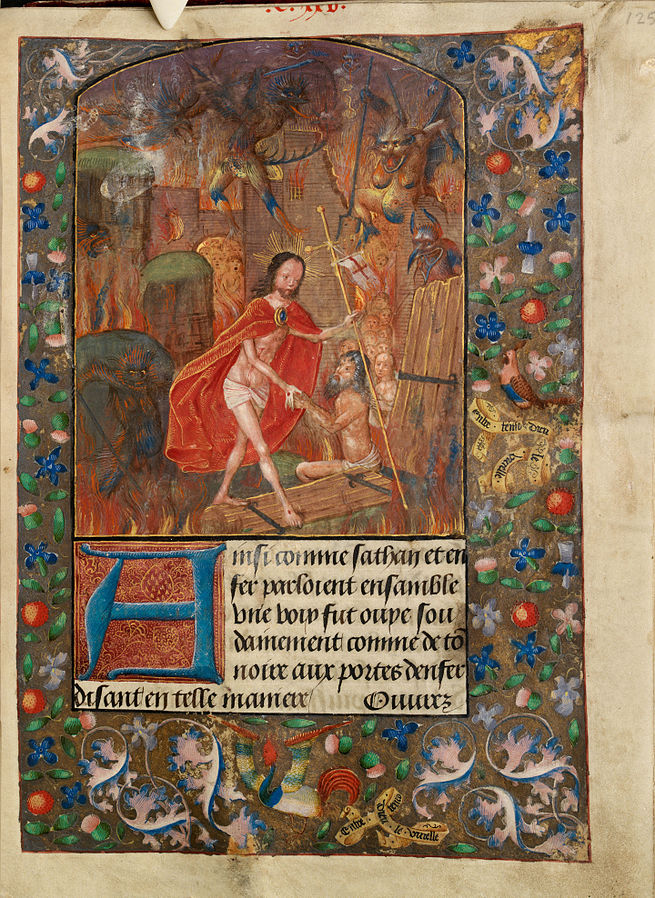
Incarnation of Christ, who saves Adam from a fine mess.
Blessed are the merciful, for they will receive mercy (Matthew 5:7).
When God made humankind from the mud, forming Adam and breathing life into him, God crafted the muck into something fine. But still a mess, a fine mess.
“We were made for You, and our hearts are restless until they rest in You.” Thus prayed Augustine at the beginning of his long prayer called The Confessions. He confessed what a mess he was and how gracious God is. Amid all of Augustine’s self-abnegation, we sense how fine God made him, and how fine God makes all of us despite the messes we make.
In calling myself a mess, I confess sin, compromising love of God by pursuing lesser gods. On the heels of Adam’s creation, Adam sins, carelessly taking a stab at equality with God. He forgets that while God made him fine as he is, compared to God, he remains a mess.
The Hebrew, adam, means human. Adam is you and me.
So we bear responsibility for our predicament, but God still made a fine mess. After all, as God says later to all of us Adams,
My thoughts are not your thoughts, nor are your ways my ways, says the Lord. For as the heavens are higher than the earth, so are my ways higher than your ways and my thoughts than your thoughts (Isaiah 55:8-9).
So if God made us with hearts restless until they rest in God, what a predicament! God exceeds our imagining, so much beyond us that we cannot bring God into focus. Little wonder God warned Moses that he could not see God’s face and live through it.
So we are a fine mess, creatures made in God’s image, made to love God, longing to rest in God, but we cannot fathom God or even look into God’s eyes.
Yet, this one thing we know of God amid all the mystery: God is merciful. Those verses above from Isaiah about God’s incomprehensible thoughts and ways elaborate on these words just prior:
Let them return to the LORD, that he may have mercy on them, and to our God, for he will abundantly pardon (Isaiah 55:7b).
Mercifully, God gives us access through a divine maneuver theologians call incarnation. The divine, the perfect, enters into the human, mingles with the fine mess we are.
“Lord, show us the Father, and we will be satisfied,” insisted the Incarnate One’s disciple, Philip, who spoke for every adam before and since. “Whoever has seen me has seen the Father,” Jesus answered. Jesus, who looks every bit the fine mess all of us are but somehow reveals the Father.
Dazzled by Jesus’ thoughts that were not his thoughts, Jesus’ ways that were not his ways, the Pharisee, Nicodemus, asked, “How can these things be?” (John 3:9b) And after some more dizzying truths, Jesus got to the main point, the main mercy:
For God so loved the world, that he gave his only Son, so that everyone who believes in him may not perish but may have eternal life (John 3:16).
Such are God’s thoughts that are not ours, ways that are not ours; yet, God dwells among us, suffers with us and for us. Gods’ Son enters into the fine mess God made, suffers humiliation and death with us and for us. In Christ, God retains that wholly otherness yet looks us in the eyes, shares our plight, befriends us.
The incarnation comes clear where two or three gather in Christ’s name, where we minister to the hunger and thirst, shame and loneliness, sickness and imprisonment of friends and especially strangers. The incarnation cleans up God’s fine mess, you and me, with mercy beyond our imagining.
If that makes you yearn for greater intimacy with the merciful God beyond your mind’s grasp, if that makes you want to participate in the gathering and ministering that awakens you to incarnation, to God’s intimate presence in Christ, I have good news for you:
Christ rose from the dead and lives. And he invites you to follow him.
Related Posts
Waking Nicodemus
Love Knows the Incomprehensible God
Inbreaking of Mercy in a Merciless World
Image: Vaux Passional, or “Harrowing of Hell: Christ Leads Adam by the Hand,” circa 1503, public domain, author unknown.


When I began centering prayer, I fought to clear my mind. It was such a struggle. Now I understand that what it was is my desire to find the means of finding my rest in God.
I do not get completely clear for the time I spend, but I cherish those moments when there is nothing there in mind. Those are the moments when I step out of my mess into the presence.
That is indeed a blessing, to “step out of my mess into the presence” when resting in silent, loving attention to God. Yet, you can’t lose with centering prayer as long as you keep up that attention because those thoughts and images that inevitably distract us present opportunities to return from them to that moment of “stepping out of my mess.” The stepping out is as blessed as the being out.